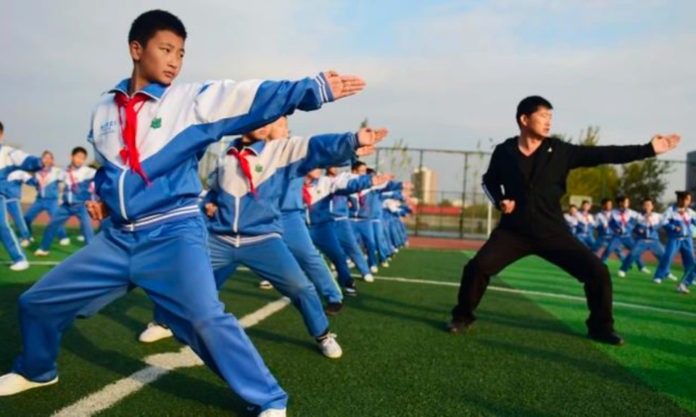
A school in Nanjing is among those to have launched classes that aim to restore to male Chinese teenagers some degree of perceived masculinity, as the nation grapples with norms of acceptance that challenge notions of China as a nation of superior strength.
Public debate in China is raging these days, on the topic of “preventing the feminisation of male teenagers”. The heated discussion comes after a high-level cadre put forward a proposal commenting that young boys nowadays are weak, self abased and timid.
By way of reply, just before the lunar new year holiday, the Chinese Ministry of Education put forward its position on the matter, saying, “More attention should be paid to the cultivation of students’ masculinity”.
Major Chinese web portal, Sina, has reported further on the contents of the proposal, which holds that if the feminisation trend of Chinese teenagers is not effectively controlled, it will certainly endanger the survival and development of the Chinese nation.
Supporters think that some modern teenagers are really too “sissy” and need to be enlivened, while opponents criticise that such is discriminating to women and overcorrecting.
While the phenomenon itself is hardly new, its intensity has for many reached fever pitch. The causes are complex. Education and living environment may be factors, while the “one-child policy” may have also had a role to play.
The original comment was supported by observations that after birth, Chinese boys spend the most time with their mothers. Some of them are brought up by their grandmothers and live in a “mother-in-law” environment for a long time. After children enter school, most of their teachers are women, who become a great influence in their lives.
Add to this the role of social media, and many would be inclined to agree that modern men do lack masculinity, something that can be further confirmed by the trend of film, television and fashion.
Put forward at the third meeting of the 13th National Committee of the Chinese People’s Political Consultative Conference in May 2020, the proposal did not attract much attention until the Ministry of education gave their reply on 28 January this year, pushing the topic into the mainstream.
The expression, “I don’t want to be a “battle hero” anymore”, was noted by the World Journal as reflective of support for those against measures which have in fact been slowly introduced by many educational institutions in recent years.
In assessing its student body, Xincheng Junior High School attached to Nanjing Teachers College found that many boys’ academic performance and sports were not as good as those of girls. Therefore, a “boys’ education activity class” was set up to enhance their masculinity through physical training, team development and eloquence education.
Others have proposed the introduction of more male kindergarten teachers to play the role of “father”, again with the purpose of forming habits of greater masculinity in the very young.
On the other side of the coin, there are many who believe the phenomenon is simply a reflection of the deep-rooted sexism that exists in some sectors.
But few have expressed any anxiety over an increase in the “masculinity” of women.

